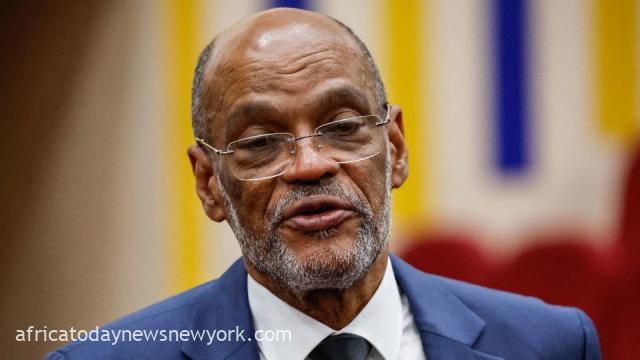The government of the United States has stated that it was not in anyway pressuring Haitian Prime Minister Ariel Henry to step down amid a fresh wave of violence and soaring instability in the Caribbean nation, where powerful gang leaders are demanding Henry’s resignation.
In a news conference on Wednesday, US State Department spokesman Matthew Miller said Washington is “not calling on him [Henry] or pushing for him to resign”.
However, Miller told reporters that the US is urging Henry “to expedite the transition to an empowered and inclusive governance structure that will move with urgency to help the country prepare for a multinational security support mission”.
That mission, which has the backing of the United Nations but has been stalled for months, will then “address the security situation and pave the way for free and fair elections” in Haiti, Miller said.
Africa Today News, New York reports that his comments come after the Miami Herald reported early on Wednesday that the State Department had asked Henry to agree to a new transitional government and resign amid the growing crisis in Haiti.
A surge in gang violence that began at the weekend — and included attacks on police stations and raids on two prisons in the capital of Port-au-Prince — has displaced tens of thousands of people and effectively paralysed the city.
Read Also: Pandemonium In Haiti Following Airport Attack, Deadly Unrest
A 74-year-old neurosurgeon, Henry was sworn in as Haiti’s prime minister in July 2021, less than two weeks after President Jovenel Moise was assassinated. Moise had chosen Henry for the post shortly before he was killed.
The assassination worsened months of political instability in Haiti, and gang violence soared in the resulting power vacuum.
Meanwhile, Henry — who long enjoyed the backing of the US and other Western powers, including the so-called Core Group of nations — faced a crisis of legitimacy from the very start of his tenure.
Some Haitian civil society groups had urged him to hand power over to an inclusive, transitional government, a move they argued would help stem the gang violence and widespread insecurity plaguing the country.
Henry rejected that demand, but said he was seeking unity and dialogue. He also repeatedly said that elections could not be held until it is safe to do so.
But that angered many people across Haiti, including armed gang leaders who over the past few years have used pressure tactics – including fuel terminal blockades – in an effort to force him to resign.

